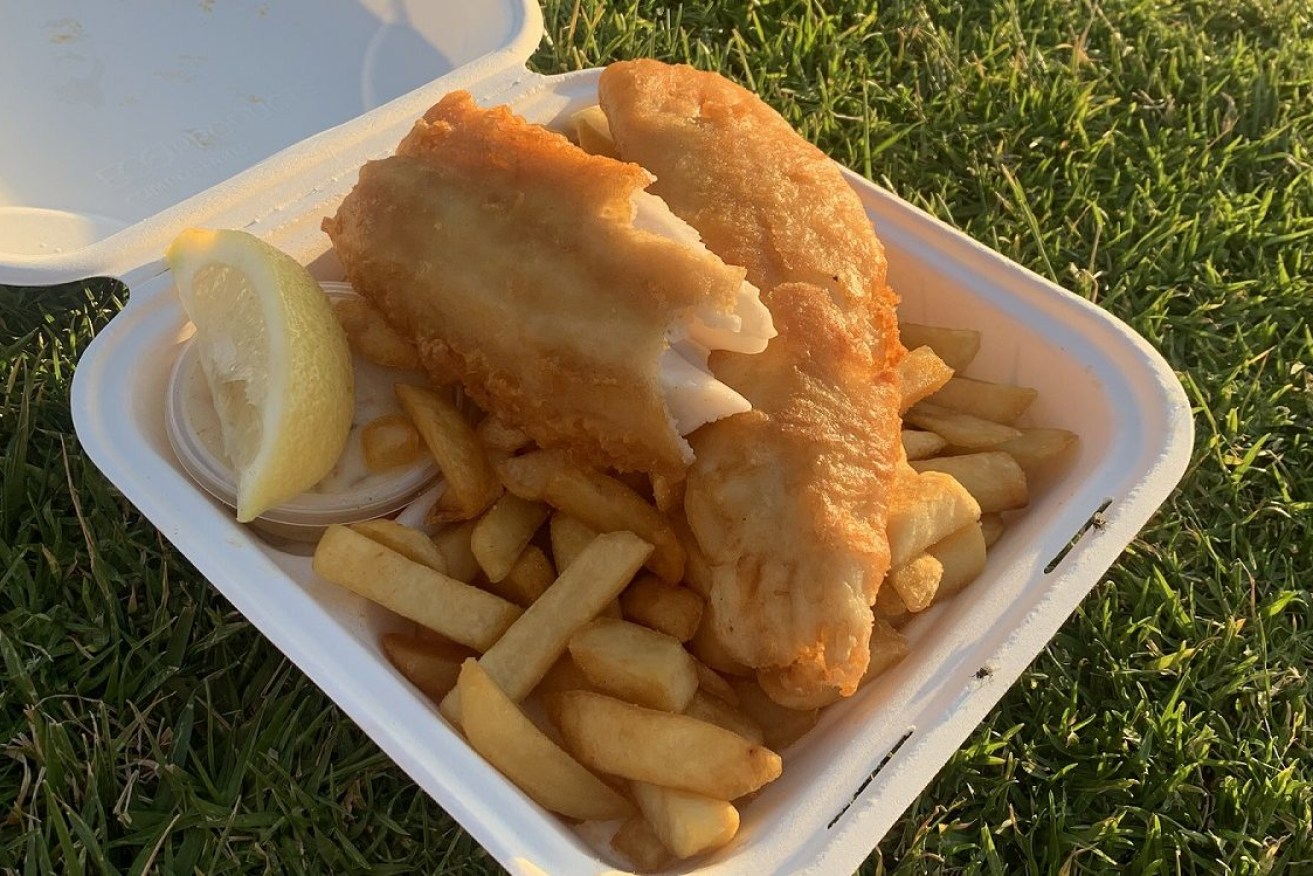SA fish and chip shops selling endangered shark species
Some South Australian fish and chip shops are selling endangered shark species as flake, according to a new study, with the findings prompting a call for strengthened food labelling guidelines.


Photo: supplied
Researchers at the University of Adelaide today released the findings of DNA analysis of 125 flake samples across 94 South Australian fish and chip shops and 10 wholesalers.
Flake is a food labelling term for shark fillet that comes from two recommended species: gummy shark and New Zealand rig. The two species have a sustainable population and are locally caught.
However, the study, which collected samples between March and August 2021, found only 27 per cent of the flake on sale was gummy shark.
The remaining 73 per cent was made up of eight different shark species, including four threatened species such as the short-fin mako shark and smooth hammerhead shark.
Some of the shark species being sold as flake were not sharks found in Australian waters, the study found.
The findings were published in the international journal Food Control.
University of Adelaide research assistant Ashleigh Sharrad, the study’s lead author, said the findings “highlight the need for clearer national guidelines or labelling laws for shark fillets”.
“It is important to note that while a broad variety of species are being sold as flake, smaller retailers can’t be accused of mislabelling because they are most likely unaware when they purchase bulk, processed or frozen fish fillets,” she said.
“This is the key to building trust across the supply chain, boosting demand for local, sustainable catch and importantly, empowering consumers and retailers to make informed choices.”
The study also found that only 11 per cent of retailers could correctly identify the shark species they were selling as flake, while 20 per cent had “mislabelled” the flake and the remaining 69 per cent had “ambiguous” labelling.
The study has raised concerns about the rise of “food fraud” in the seafood industry.
“Food fraud in the seafood industry is a growing concern and mislabelling may occur,” said the university’s Professor Bronwyn Gillanders, a researcher in the School of Biological Sciences and the Environment Institute.
“It can have potential implications on human health, the economy, and species conservation.”




